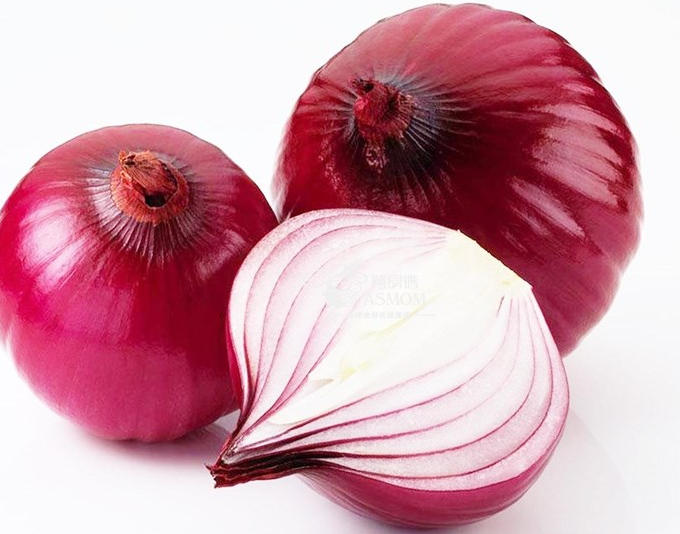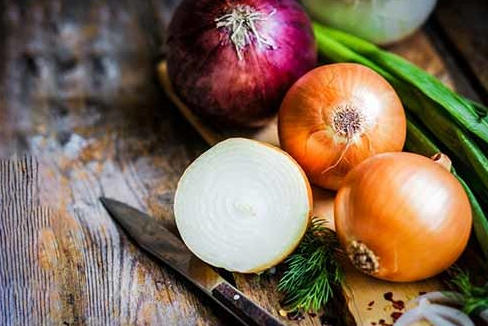Onions are a staple ingredient in cuisines all around the world. Their distinct flavor and aroma can enhance a wide variety of dishes, from soups and stews to stir-fries and salads. However, onions are much more than just a flavorful addition to our meals. They also have a range of health benefits that make them an essential part of a balanced diet.
10 Amazing Health Benefits of Onion :
ONION BENEFITS – 13 Powerful Health Benefits of Onion! :
In this article, we will explore the properties of onions and their potential health benefits. We will delve into the nutritional value of onions, examining their vitamins, minerals, and other essential nutrients. We will also look at the ways in which onions can promote good health, from boosting immunity to preventing chronic diseases. Whether you are a seasoned cook or simply someone interested in improving your overall health, this article is sure to provide valuable insights into the many benefits of onions.

1. Introduction
1.1. Historical Background of Onions
The onion (Allium cepa) is a vegetable that has been cultivated and consumed for thousands of years. It belongs to the Allium family, which also includes garlic, leeks, and chives. The origin of onions is believed to be in central Asia, possibly in the region that is now Iran and Pakistan. However, onions were also known and used by the ancient civilizations of Egypt, Greece, Rome, and China.
In ancient Egypt, onions were considered sacred and were used in religious ceremonies, as well as for culinary and medicinal purposes. They were also used as a form of currency to pay workers who built the pyramids. In ancient Greece, athletes consumed large quantities of onions to improve their physical strength and endurance. Roman gladiators, too, rubbed onions on their bodies to enhance muscle tone.
Onions were introduced to Europe by the Romans and quickly became a staple food item in various cuisines. During the Middle Ages, onions were consumed by both the rich and the poor, and they were valued for their medicinal properties, particularly their ability to alleviate cold symptoms and digestive issues. In the early modern period, European explorers and traders brought onions to the Americas, where they became an essential ingredient in many traditional dishes.
1.2. Cultivation and Production of Onions
Onions can be grown in a variety of climates and soil types, but they generally prefer well-drained, fertile soil and moderate temperatures. They are usually grown from seeds, seedlings, or sets (small, immature bulbs). Depending on the variety, onions can be harvested in as little as two months or as long as nine months after planting.
The global production of onions has increased significantly over the past several decades. The top onion-producing countries include China, India, the United States, Egypt, and Turkey. Onions are typically harvested by hand or with specialized machinery, and they are usually stored and transported in well-ventilated, cool conditions to prevent spoilage and ensure a long shelf life.
1.3. Types and Varieties of Onions
There are many types and varieties of onions, which can be classified based on their shape, size, color, and taste. Some common types of onions include:
Yellow onions: The most common type of onion, with a strong, pungent flavor and a high sulfur content. They are widely used in cooking for their rich, complex taste.
Red onions: These onions have a milder, sweeter taste and are often used raw in salads and sandwiches. Their attractive color also makes them a popular choice for garnishing dishes.
White onions: With a mild, slightly sweet taste, white onions are commonly used in Mexican and other Latin American cuisines. They are also popular for pickling and can be used in cooked dishes.
Green onions (scallions): These are the immature stems and bulbs of onion plants, with a mild, grassy flavor. They are often used as a garnish or in salads, stir-fries, and soups.
Shallots: A close relative of onions, shallots have a delicate, sweet, and slightly garlicky taste. They are often used in French cuisine and can be used in a variety of dishes, both cooked and raw.
Pearl onions: These small, round onions have a sweet, mild taste and are often used in stews, braises, and pickling.
Each variety of onion offers a unique combination of flavors, textures, and culinary uses, allowing for a wide range of possibilities in the kitchen.

2. Nutritional Composition of Onions
Onions are a low-calorie, nutrient-dense food that provides a variety of essential vitamins, minerals, and other beneficial compounds. Their nutritional composition makes them a valuable addition to a healthy diet.
2.1. Macronutrients
Onions are primarily composed of water (about 89-90%) and carbohydrates (about 9-10%), with a small amount of protein (about 1-1.5%) and negligible amounts of fat. The carbohydrates in onions are mainly in the form of sugars, such as glucose, fructose, and sucrose, as well as small amounts of dietary fiber.
2.2. Vitamins and Minerals
Onions are a good source of several essential vitamins and minerals, including:
Vitamin C: An important antioxidant that helps protect cells from damage, supports the immune system, and aids in the absorption of iron from plant-based foods.
Vitamin B6 (pyridoxine): A water-soluble vitamin that plays a role in various metabolic processes, including protein metabolism, neurotransmitter synthesis, and red blood cell production.
Folate: A B vitamin that is crucial for DNA synthesis, cell division, and proper brain function. Folate is particularly important for pregnant women, as it helps prevent neural tube defects in the developing fetus.
Potassium: An essential mineral that helps regulate fluid balance, muscle contractions, and nerve signals. A diet rich in potassium can help maintain healthy blood pressure levels.
Manganese: A trace element that is necessary for the proper functioning of enzymes, antioxidant defense, and bone development.
2.3. Phytochemicals and Antioxidants
Onions are rich in various bioactive compounds, particularly flavonoids and sulfur-containing compounds, which have antioxidant and anti-inflammatory properties. Some of the most important phytochemicals found in onions include:
Quercetin: A flavonoid with potent antioxidant and anti-inflammatory effects, which has been shown to have potential health benefits, including reducing the risk of heart disease, cancer, and allergies.
Allicin: A sulfur-containing compound that is formed when onions are chopped or crushed, allicin has antibacterial, antiviral, and antifungal properties, and may also have cardiovascular benefits.
Sulfur compounds: Onions contain a variety of sulfur-containing compounds, such as diallyl sulfide and S-allyl cysteine, which have been shown to have potential cancer-preventive properties.
2.4. Dietary Fiber
While onions are not a particularly high-fiber food, they do provide a small amount of both soluble and insoluble dietary fiber. Consuming fiber-rich foods can help support healthy digestion, regulate blood sugar levels, and lower cholesterol levels.

3. Health Benefits of Onions
Onions have been valued for their medicinal properties for centuries, and modern research has confirmed many of their potential health benefits. The unique combination of nutrients, phytochemicals, and antioxidants found in onions can contribute to overall health and help prevent various diseases and conditions.
3.1. Cardiovascular Health
Onions can have a positive impact on cardiovascular health in several ways. Their high levels of antioxidants, such as quercetin and allicin, help protect the heart and blood vessels from oxidative damage, which can contribute to the development of atherosclerosis. Additionally, onions have been shown to help lower blood pressure, reduce cholesterol levels, and inhibit platelet aggregation, which can reduce the risk of blood clots and stroke.
3.2. Cancer Prevention and Treatment
The various phytochemicals found in onions, particularly the sulfur-containing compounds and flavonoids, have been shown to have potential cancer-fighting properties. These compounds can help neutralize cancer-causing agents, inhibit tumor growth, and induce apoptosis (cell death) in cancer cells. Several studies have suggested that regular consumption of onions may be associated with a reduced risk of various types of cancer, such as gastric, breast, and colorectal cancer.
3.3. Immune System Support
Onions contain several nutrients and compounds that can help support a healthy immune system. The high levels of vitamin C in onions act as an antioxidant, protecting immune cells from damage and promoting their proper function. Additionally, the sulfur-containing compounds in onions, such as allicin, have antimicrobial properties that can help combat bacterial, viral, and fungal infections.
3.4. Gastrointestinal Health
Onions can contribute to a healthy digestive system in several ways. Their dietary fiber content can help promote regular bowel movements and prevent constipation, while their prebiotic properties can support the growth of beneficial gut bacteria. Furthermore, onions have been shown to have anti-inflammatory and antioxidant effects on the digestive tract, which may help protect against gastrointestinal disorders, such as inflammatory bowel disease and gastric ulcers.
3.5. Blood Sugar Regulation
Some research suggests that onions may help improve blood sugar control in people with diabetes or at risk of developing the condition. The sulfur compounds and flavonoids found in onions have been shown to have potential antidiabetic effects, such as increasing insulin sensitivity and reducing glucose absorption in the intestine. Additionally, the dietary fiber in onions can help slow the release of sugars into the bloodstream, preventing rapid spikes in blood sugar levels.
3.6. Bone and Joint Health
Onions contain various nutrients and compounds that can support healthy bones and joints. Their high levels of antioxidants, such as quercetin, can help protect bone cells from damage and may have a positive effect on bone mineral density. Some research also suggests that onions may have anti-inflammatory properties that can help alleviate joint pain and inflammation associated with conditions like osteoarthritis.
3.7. Respiratory Health
Onions have been traditionally used as a natural remedy for respiratory conditions, such as colds, coughs, and asthma. Their high levels of antioxidants and sulfur-containing compounds can help reduce inflammation and oxidative stress in the respiratory system, which may help alleviate symptoms and improve lung function. Additionally, the antimicrobial properties of onions can help fight respiratory infections.


